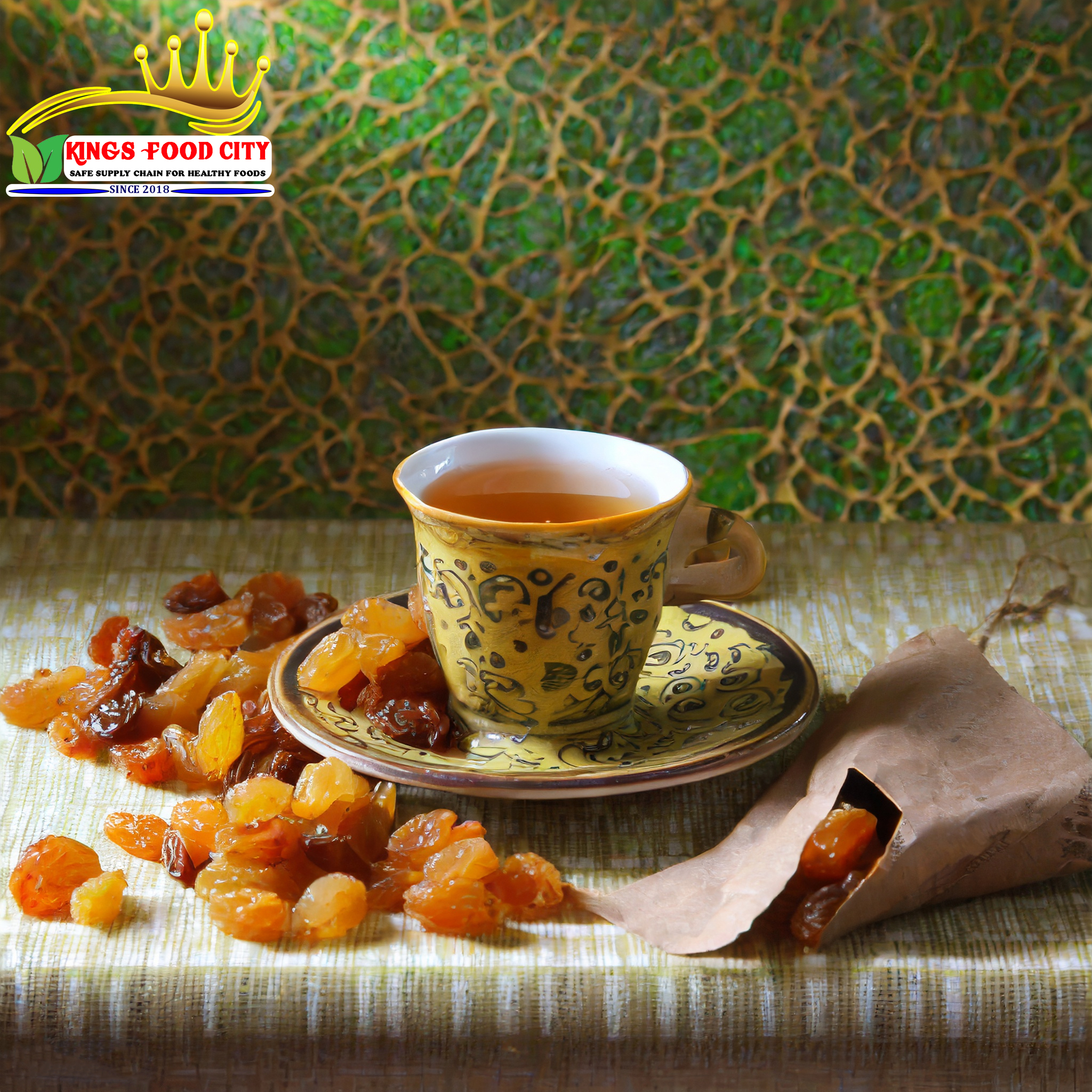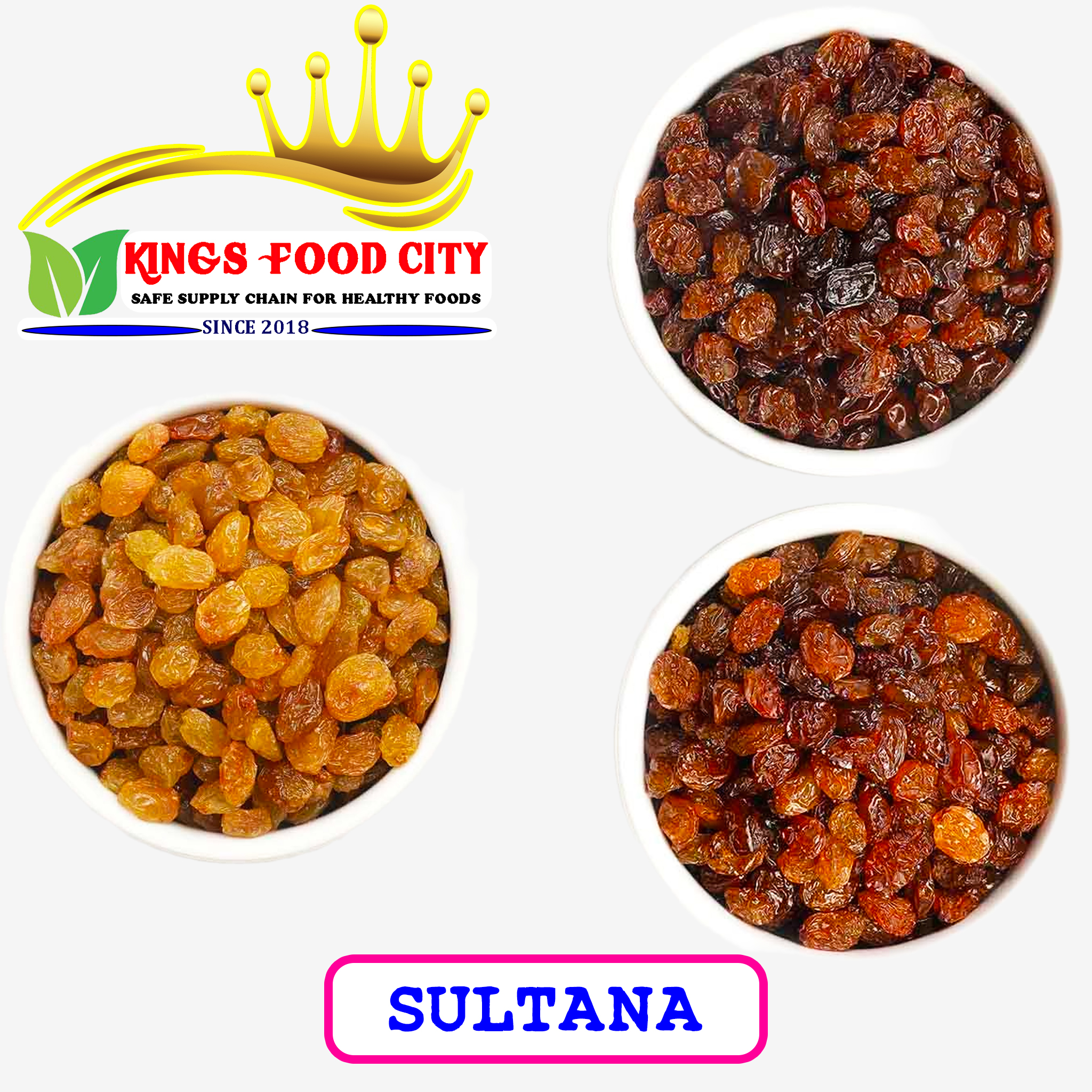
Historical Description of Sultanas
The history and significance of the sultana raisin is a fascinating topic that dates back centuries. The name "sultana" itself has origins in the Ottoman Empire, where the term was used to refer to the wife of a sultan or a princess. This regal connotation was then transferred to the raisin in the mid-19th century, elevating its status in the world of dried fruits.
However, the history of raisins themselves is even more ancient, with evidence of grape cultivation and drying dating back thousands of years to various ancient civilizations, such as the Egyptians, Greeks, and Romans.
The process of making raisins involves a careful drying process that extends their shelf life while also enhancing their flavor, sweetness, and nutritional value. The sultana raisin, in particular, is made from a specific variety of seedless yellow-green grapes known as Vitis vinifera, and once dried, they become the small, golden, and incredibly tasty sultana raisins that are beloved in many culinary uses.
Sultana Dark Brown and Light Brown Raisin

Sultana raisins are a type of dried grape that are popular around the world for their sweetness and versatility in cooking. One popular variety of sultana raisins is the dark brown variety, which is known for its rich color and delicious flavor. These raisins are produced from seedless grapes of the Vitis vinifera species, and are dried naturally under sunlight to achieve their distinctive dark brown hue. To enhance their flavor and shine, they are coated with vegetable oil and covered with sulfur dioxide. Unlike their lighter counterparts, the standard level of SO2 for dark brown raisins is zero, which is why they have a darker color than light brown sultana raisins. They are packed with flavor and are a healthy and safe snack for people of all ages to enjoy.
Sultana light brown raisins are a truly exceptional variety of raisins that are widely known worldwide for their delicious taste and unique production process. They are produced using only the freshest and highest quality seedless grapes that are thoroughly washed to ensure that there is no dust or debris left on them. Once they are washed, these grapes are carefully dipped in vegetable oil, a process that gives them a beautiful shine and prevents them from sticking together. What makes these raisins truly special, however, is the way they are dried. Sultana light brown raisins are naturally dried by covering them with sulfur dioxide and leaving them under the sun for several days. The amount of sulfur dioxide used during this process determines the color of the raisins, with light brown raisins typically containing between 500 to 600 ppm. So, if you're looking to add some delicious flavor to your meals or simply want a healthy snack, Sultana light brown raisins are definitely worth a try!
Sultana light brown raisins are a truly exceptional variety of raisins that are widely known worldwide for their delicious taste and unique production process. They are produced using only the freshest and highest quality seedless grapes that are thoroughly washed to ensure that there is no dust or debris left on them. Once they are washed, these grapes are carefully dipped in vegetable oil, a process that gives them a beautiful shine and prevents them from sticking together. What makes these raisins truly special, however, is the way they are dried. Sultana light brown raisins are naturally dried by covering them with sulfur dioxide and leaving them under the sun for several days. The amount of sulfur dioxide used during this process determines the color of the raisins, with light brown raisins typically containing between 500 to 600 ppm. So, if you're looking to add some delicious flavor to your meals or simply want a healthy snack, Sultana light brown raisins are definitely worth a try!
Nutritional and Health Benefits
Sultana raisins are a remarkably nutritious and healthful addition to one's diet, offering a range of benefits that contribute to overall well-being.
1. Antioxidants: Sultana raisins are packed with antioxidants, including phenolic acids and flavonoids. These powerful compounds help combat oxidative stress and inflammation in the body, potentially reducing the risk of chronic diseases and supporting cellular health.
2. Vitamins and Minerals: Sultana raisins are a great source of essential vitamins and minerals. They provide a good amount of potassium, which is crucial for regulating blood pressure, and are rich in B vitamins, such as B6 and riboflavin, which are involved in energy metabolism and overall health.
3. Fiber: These little gems are high in dietary fiber, aiding in digestion, promoting a healthy gut microbiota, and contributing to a sense of fullness, which can help with weight management.
4. Natural Sugars: While naturally sweet, sultana raisins have a low glycemic index, meaning they cause a gradual and moderate increase in blood sugar levels compared to high-glycemic foods.
5. Heart Health: The antioxidants and fiber found in sultana raisins have been associated with a reduced risk of heart disease. Additionally, the potassium content may help maintain healthy blood pressure, promoting cardiovascular well-being.
6. Digestive Health: The fiber in raisins supports regular bowel movements and a healthy digestive system. It can also aid in maintaining a balanced gut microbiota, which is crucial for overall wellness.
7. Bone Health: Sultana raisins contain calcium and boron, both of which are integral to maintaining strong and healthy bones. Boron, in particular, is associated with the prevention of osteoporosis.
8. Improved Athletic Performance: Due to their natural sugar content and potassium, sultana raisins can serve as a convenient and easily digestible energy source for athletes and individuals engaging in physical activities.
1. Antioxidants: Sultana raisins are packed with antioxidants, including phenolic acids and flavonoids. These powerful compounds help combat oxidative stress and inflammation in the body, potentially reducing the risk of chronic diseases and supporting cellular health.
2. Vitamins and Minerals: Sultana raisins are a great source of essential vitamins and minerals. They provide a good amount of potassium, which is crucial for regulating blood pressure, and are rich in B vitamins, such as B6 and riboflavin, which are involved in energy metabolism and overall health.
3. Fiber: These little gems are high in dietary fiber, aiding in digestion, promoting a healthy gut microbiota, and contributing to a sense of fullness, which can help with weight management.
4. Natural Sugars: While naturally sweet, sultana raisins have a low glycemic index, meaning they cause a gradual and moderate increase in blood sugar levels compared to high-glycemic foods.
5. Heart Health: The antioxidants and fiber found in sultana raisins have been associated with a reduced risk of heart disease. Additionally, the potassium content may help maintain healthy blood pressure, promoting cardiovascular well-being.
6. Digestive Health: The fiber in raisins supports regular bowel movements and a healthy digestive system. It can also aid in maintaining a balanced gut microbiota, which is crucial for overall wellness.
7. Bone Health: Sultana raisins contain calcium and boron, both of which are integral to maintaining strong and healthy bones. Boron, in particular, is associated with the prevention of osteoporosis.
8. Improved Athletic Performance: Due to their natural sugar content and potassium, sultana raisins can serve as a convenient and easily digestible energy source for athletes and individuals engaging in physical activities.
Culinary Uses of Sultana Raisins
Sultana raisins are such a delightful addition to various culinary creations. These golden, seedless raisins bring a natural sweetness and a lovely chewy texture to dishes. Sultana raisins are frequently used in baking, especially in recipes such as scones, muffins, bread, cakes, and cookies. Their sweet, fruity flavor adds a delicious contrast to the baked goods. They are a fantastic addition to salads, adding a burst of sweetness and chewiness. Whether it's a simple green salad, a couscous salad, or a grain salad, sultana raisins can elevate the flavors. In savory dishes like curries and tagines, sultana raisins add a subtle sweetness that balances out the savory and spicy flavors. Their plump texture and slightly caramelized taste can really bring a dish together. Sultana raisins are commonly used in rice dishes like pilafs, biryanis, and savory rice stuffing. Their sweetness pairs wonderfully with the savory and aromatic flavors of the rice and spices. Adding sultana raisins to trail mixes, granola, and homemade snack bars can provide a natural sweet boost and a satisfying chewiness.

